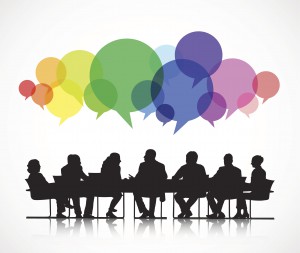Are you an introvert or an extrovert?
We’ve all heard it before. Be assertive and social in an interview. Show that you want the job and are easy to talk to. You want to show how great it would be to work with you, and how valuable your sense of teamwork is.
However, what do you do if you’re an introvert? You would love to come off as talkative and social, but that’s just not who you are.
It turns out that your personality type heavily affects how you approach an interview. You want to cater to your strengths and cover your weaknesses. As such, introverts and extroverts both need to approach interviews differently.
Introverts
An introvert, per the Merriam-Webster dictionary, is “one whose personality is characterized by introversion; broadly: a reserved or shy person.”
An introvert doesn’t hate people—he or she just doesn’t enjoy being the center of attention. Introverts recharge their batteries by being alone, and sometimes can only handle social situations for a short amount of time.
How are you supposed to act in an interview? By focusing on your goals and preparing. Most introverts are critical thinkers—they spend more time alone, and thus more time in their own mind. Use this time to anticipate all the questions an interviewer might ask, and to develop an action plan. If improvising in the moment isn’t your strength, simply prepare a suitable response for every possible situation.
In the actual interview, rely on your preparation. If a question comes up you didn’t prepare for, don’t be afraid to ask for a moment to reflect on the question. An interview is not a race—you don’t have to answer as quickly as possible to show you’re the right person for the job.
Extroverts
Merriam-Webster notes that an extrovert is “one whose personality is characterized by extroversion; broadly: a gregarious and unreserved person.” So, someone who likes to talk, and isn’t afraid to state their opinion. Although it might seem like interviews would be a breeze for people like this, that’s not always the case.
Extroverted applicants need to be especially wary of oversharing or taking over the interview. Your answer to a question should never exceed three minutes. When asked about your overall experience and interest in the job, have a prepared speech planned. Standard questions (where do you see yourself in (blank) years, tell me about a time….), should be answered in 90 seconds or less.
Be aware of body language and the personality type of your interviewer. If your answers and their questions are flowing rhythmically, you’re probably dealing with another extrovert. That’s more in your wheelhouse. However, if they’re taking a bit of time to process your answers and taking detailed notes, you might be dealing with an introvert. Take that to heart, and consider your words more carefully. Speak slowly and succinctly. Give them time to process what you’re saying. Know when to speak, and when not to.
It’s important to note that your personality type lies on a spectrum. Some people are extroverted introverts, while others are introverted extroverts. Know yourself, and adapt your own unique personality to the interview process.
How has your personality type affected your interview style? Let us know in the comments below!



